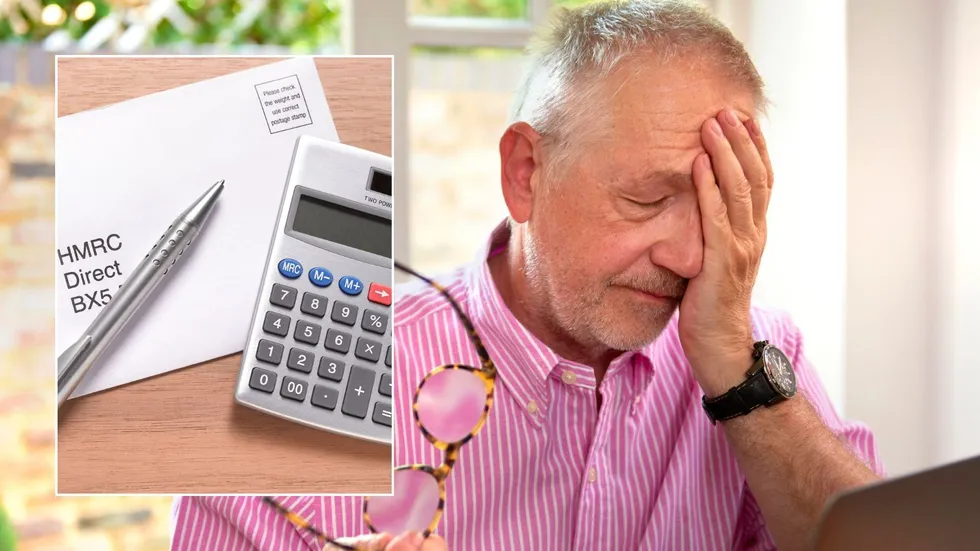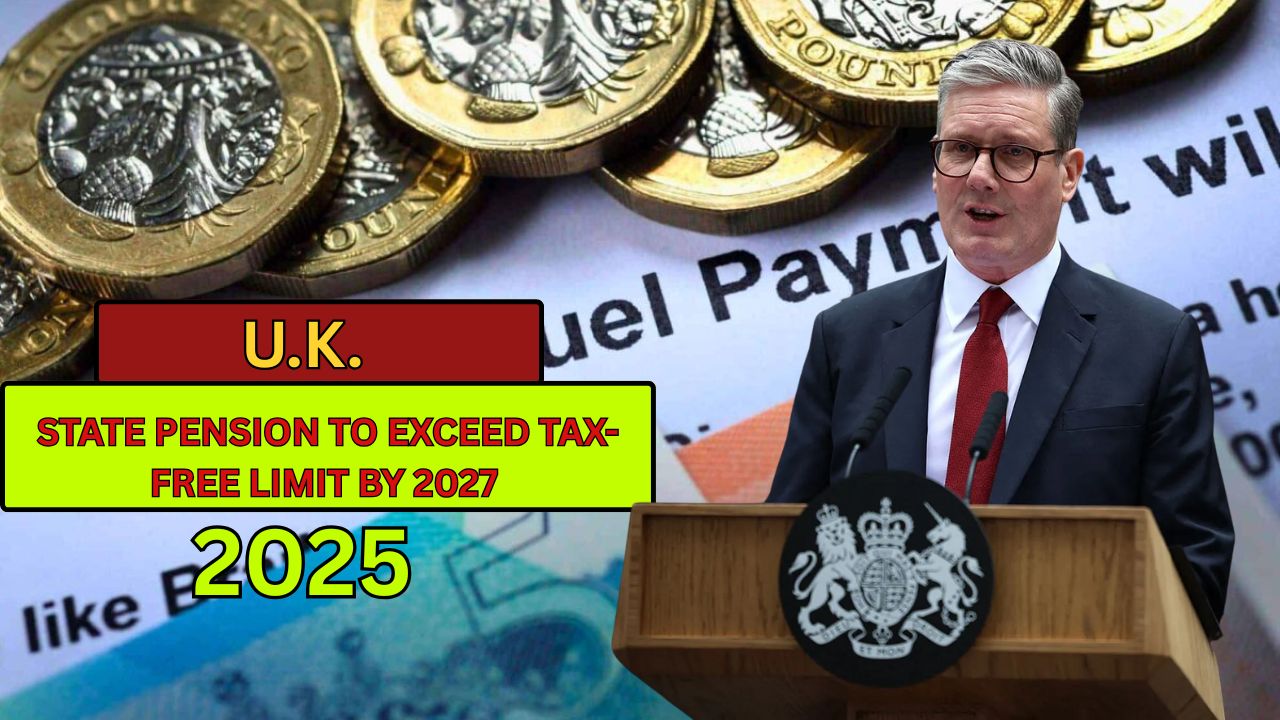Millions of UK pensioners may soon find themselves paying income tax on their State Pension as projections show the benefit will surpass the tax-free personal allowance by April 2027. This change is largely the result of two government policies working at odds: the freeze on the personal tax allowance and the annual rise in State Pension under the triple lock system.
State Pension Set to Exceed Personal Allowance
According to forecasts, the full new State Pension is expected to rise to £12,578.80 in the 2027/28 financial year. This figure would exceed the personal allowance, which has been frozen at £12,570 since the 2021/22 tax year and will remain unchanged until April 2028, under current UK government policy.
The personal allowance is the amount of income you can earn each year without paying tax. When your income exceeds this threshold, basic-rate tax at 20% is applied to the difference.
How the Triple Lock Accelerates the Problem

The triple lock guarantees that the State Pension increases every year by the highest of:
- Inflation
- Average wage growth
- Or 2.5%
While this mechanism helps pensioners maintain purchasing power amid inflation, it inadvertently pushes the State Pension closer to or beyond the frozen personal allowance.
In 2024/25, the full new State Pension already increased by 8.5%, bringing it to £11,502.40 per year. Another projected rise of 9% in 2025/26 could further inflate the pension figure, breaching the tax-free threshold by 2027.
Impact on Retirees
Many pensioners—particularly those relying solely on State Pension—have historically not had to file tax returns or pay income tax. However, by 2027/28, that could change.
An analysis by The Sun estimates that pensioners could face a tax bill of around £1.60 per year—a modest figure, but one that introduces new complications for seniors unused to the tax system.
More significantly, retirees aged 85–89 are among the most vulnerable to these tax shifts. Data from The Telegraph reveals that 46% of pensioners in this age group are already above the personal allowance threshold, compared to 22% of those under 85. This is due in part to the fact that older retirees often receive larger entitlements from the older, earnings-linked State Pension system.
Challenges for the Elderly
Concerns are growing that thousands of older pensioners may:
- Miss tax filing deadlines
- Be unaware of their new tax obligations
- Incur penalties for late payments
These administrative burdens can be overwhelming, especially for those unfamiliar with self-assessment tax returns.
Tips to Reduce Tax Exposure
While the tax implications may seem inevitable, there are a few legal ways for pensioners to manage or reduce their liabilities:
- Utilise Tax-Free Savings Allowances:
Basic-rate taxpayers are entitled to a £1,000 personal savings allowance. Earnings from ISAs (Individual Savings Accounts) remain tax-free. Learn more: https://www.gov.uk/apply-tax-free-interest-on-savings - Pension Withdrawal Strategy:
Withdraw from private pensions strategically to avoid exceeding tax thresholds. Up to 25% of most pension pots can be taken as a tax-free lump sum. - Marriage Allowance Transfer:
If one partner earns less than the personal allowance and the other is a basic-rate taxpayer, a £1,260 transfer can reduce the couple’s overall tax. Check eligibility: https://www.gov.uk/marriage-allowance

Policy Debate: Stealth Tax on Seniors?
Critics describe this looming tax liability as a “stealth tax”. The freeze on the personal allowance, combined with inflation-linked pension hikes, means that even modest pension increases are now pushing people into taxable territory.
There are growing calls for the government to unfreeze the personal allowance, especially for retirees who rely solely on State Pension for their income. Failure to do so may further erode the financial security of older generations, especially as living costs continue to climb.
In Summary
- By 2027, the State Pension is projected to surpass the personal tax allowance.
- Millions of pensioners could face small but unprecedented tax liabilities.
- Older retirees and those on fixed incomes will be most affected.
- The issue stems from the interaction between the frozen allowance and triple lock increases.
- Simple strategies such as pension planning and use of savings allowances can help mitigate the impact.
This article has been carefully fact-checked by our editorial team to ensure accuracy and eliminate any misleading information. We are committed to maintaining the highest standards of integrity in our content.

Outside of work, he enjoys playing chess, following cricket, and writing short stories. His commitment to integrity and in-depth analysis strengthens OTE News’ mission of providing trustworthy journalism.




